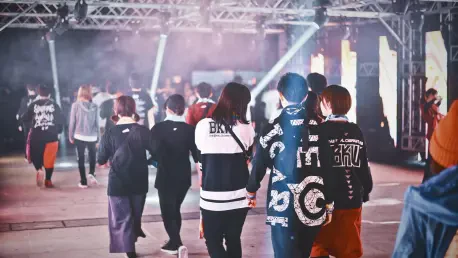In an industry where traditional approaches have long dominated, women-led event agencies are making a significant impact by reshaping brand experiences to be more meaningful and emotionally engaging. Over the past few years, the number of women-owned event agencies has risen to represent approximately 30% in major U.S. cities, reflecting a substantial shift in how brands connect with audiences. These agencies emphasize innovative contributions from women entrepreneurs who bring fresh perspectives to experiential marketing. They focus on creating emotional connections with their audiences, standing in contrast to conventional methods.
Innovation and Attention to Detail
Influence of Women Entrepreneurs
Women entrepreneurs have altered the landscape of event planning by introducing creativity and meticulous attention to detail. Figures like Jessica Boskoff, CEO of 23 Layers, advocate for a deeper understanding of spatial design, sensory engagement, and personalization to enhance event experiences significantly. By focusing on smaller operations, these agencies offer a personalized client experience that ensures the brand’s vision is accurately executed. This approach allows for more direct interaction with clients, ensuring that the brand’s essence is captured and that events are tailored to resonate deeply with audiences.
Moreover, these women-led agencies prioritize crafting environments where attendees feel both engaged and emotionally connected, thereby fostering lasting impressions that elevate branding. Their smaller-scale operations allow for greater flexibility and adaptation, enabling them to integrate the latest trends and technologies seamlessly. This attention to detail often results in memorable events that distinguish a brand from its competitors through unique, human-centered experiences.
Role of Technology and Adaptability
A hallmark of women-led event firms has been their ability to embrace technology and hybrid events, ensuring broader audience reach and engagement. Agencies like 23 Layers have illustrated adaptability, notably during challenging periods such as the pandemic, by launching sister companies like Neon River to diversify offerings. This resilience showcases their innovative approach, where digital elements and data analytics are leveraged to measure engagement effectively, providing brands with quantifiable outcomes.
The integration of technology has become crucial for marketing strategies, as clients now demand measurable results and the ability to reach diverse audiences through online platforms. Women-led agencies use digital tools not only to enhance event experiences but also to track consumer behaviors and preferences, offering insights for future event planning strategies. This integration ensures events remain relevant and impactful, catering to evolving market demands while maintaining brand consistency.
Challenges and Opportunities
Navigating Talent and Funding Disparities
Despite the innovative strides made by women in the event planning industry, challenges such as talent recruitment post-pandemic and funding disparities persist. Female founders often face barriers in securing venture capital compared to their male counterparts, which can limit growth opportunities. However, many women-led agencies counter these challenges by establishing mentorship programs and flexible work environments, attracting and retaining talent effectively. These strategies help in nurturing skills and encouraging development in the field, fostering a supportive and dynamic workplace.
The commitment to cultivating talent within their firms has also been a significant asset for women-led agencies. These businesses offer career advancement opportunities and initiatives that focus on skill development, which is particularly appealing in an industry experiencing rapid change. By prioritizing a culture of learning and collaboration, agencies can overcome financial hurdles and drive innovation while fostering a diverse workforce that enhances creative solutions.
Essential Role in Industry Evolution
The rise of female leadership within the corporate event planning sector signifies a positive shift towards authenticity, emotional engagement, and creative adaptability. Agencies like 23 Layers embody this trend, providing professional expertise with distinct approaches aligned with modern branding needs. In an era where brands increasingly prioritize emotional and meaningful connections, women-led event planning firms are pivotal to the industry’s evolution, influencing how audiences experience and interact with brands.
These firms demonstrate the potential for women-driven initiatives in reshaping industries that traditionally lacked diversity, offering new paradigms for growth and creativity. As brands look to build stronger emotional ties with their audiences, the nuanced perspective brought by women-led agencies ensures that events resonate on a personal level, securing their place in the industry’s forward trajectory. Their innovative methodologies pave the way for fresh narratives in marketing, accentuating the significance of diversity in leadership roles.
Looking Ahead
In a field traditionally dominated by established norms, women-led event agencies are driving substantial change, creating brand experiences that are both meaningful and emotionally involving. These agencies are carving out a significant presence, with the proportion of women-owned event businesses growing to nearly 30% in major U.S. cities over the last few years. This evolution symbolizes a noteworthy shift in how brands interact with their audiences. Instead of adhering to conventional strategies, these women entrepreneurs bring innovative approaches to experiential marketing, offering fresh perspectives that prioritize emotional connections. They are challenging the status quo by crafting experiences that resonate deeply with consumers, aiming to forge lasting emotional ties. As these agencies rise, they are not just altering the event landscape, but also encouraging a broader transformation in how audiences and brands relate, emphasizing authenticity and emotional engagement over the usual marketing tactics.









